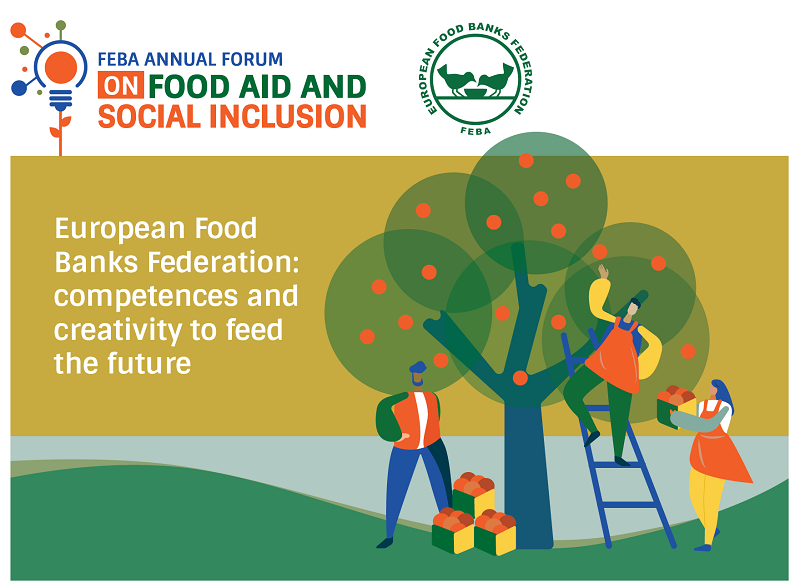On 17 December 2020, the European Food Banks Federation (FEBA) organised its Annual Forum on Food Aid and Social Inclusion with the title “European Food Banks Federation: competences and creativity to feed the future“. This year’s event was dedicated to the coronavirus that changed all of our lives dramatically, disrupted our food chains and consumption patterns and once more underlined the need to tackle social challenges – because those hit hardest by the pandemic are the most deprived. FEBA network and its affiliated partner charities had to deal with rapid changes in food availability, accessibility, and affordability, as well as an enormous increase in demand. The Annual Forum served as a great opportunity for FEBA members, academics, and officials, as well as other stakeholders to come together, discuss and take stock of the current situation, as well as shining a light on future trends, especially in relation to what is needed from EU policy.
In a short introduction, FEBA President Jacques Vandenschrik highlighted the activities of European Food Banks during the pandemic and introduced a newly published report by FEBA: “European Food Banks: a wave of solidarity to face COVID-19“.
This was followed by a keynote speech from Veronica Toffolutti, Research Fellow in Health Economics, Bocconi University, in which she discussed the question “Is the Covid-19 pandemic turning into a European food crisis?”. Her research finds two main interlinked threats that lead to food insecurity: food shortage, for example due to closure of borders, elderly work force, or protectionist behaviour by countries; as well as unequal distribution of available food, that relates to an increase of people who were not able to afford food as well as correlations with employment for instance.
After, FEBA members from Norway, Italy, Hungary, Czech Republic and Ireland each gave a short overview of special activities and projects they carried out to adapt to the new COVID-19 situation.
Loris Di Pietrantonio from the European Commission gave an update on current political developments and highlighted several initiatives, that will finance a sound recovery and aim at building back better, for instance the new EU long-term budget MFF 2021-2027, the Next Generation EU, and the REACT-EU initiative. He also gave an update on ESF+ negotiations that are still ongoing, with earmarking of basic material and food assistance of 2% (Commission and Council of the EU position) or 3% on top of 25% for social inclusion (European Parliament position) as a main point of discussion.
Roberta Sonnino, Professor of Environmental Policy and Planning and Paul Milbourne, Professor of Human Geography from Cardiff University made a keynote speech on Empowering Food Citizens. To be politically meaningful, the urban food agenda needs to start engaging with issues of power, contesting the role of profit-driven businesses. To be transformative, we need to empower citizens and drive towards participation and inclusiveness. They also highlighted the relationship between food and poverty. Food Banks perform a valuable task in responding to hunger and raising the profile of food poverty, however there is a danger of Food Banks being taken for granted in the austerity environment and become normalized and institutionalized.
Looking forward, Food Banks play a role as community hubs and resource centres and should be seen as central actors and catalysts for food system transformation.
After a short Q&A session, Jacques Vandenschrik once again thanked all participants for their contributions and commitment.




